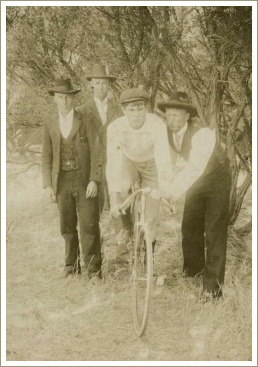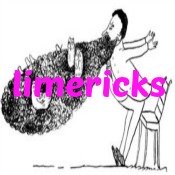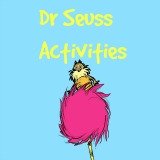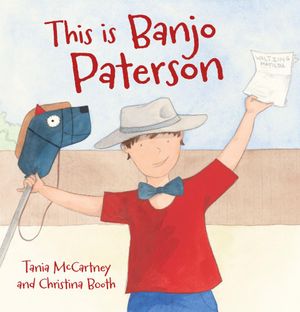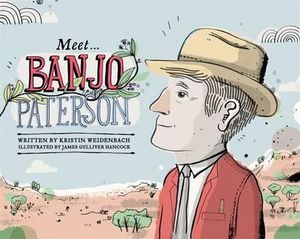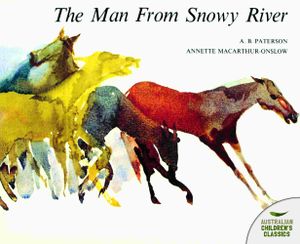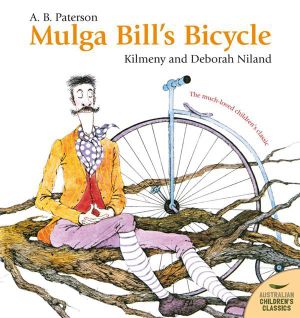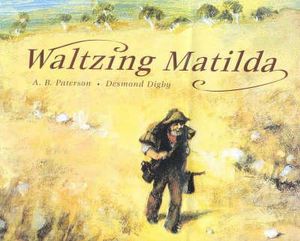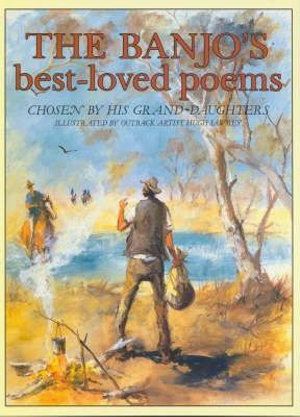You are here: home / Banjo Paterson / Mulga Bill's Bicycle
Mulga Bill's Bicycle
Mulga Bill's Bicycle is a very funny poem written by one of our most famous Australians, Andrew Barton "Banjo" Paterson.
Banjo Paterson was born in 1864 near Orange in New South Wales. He wrote and published a number of poems in the 1890s including Mulga Bill's Bicycle which was first published in The Sydney Mail on 25 July 1896.
A Quick History of the Bicycle
The bicycle was invented in the early 1800s in Germany by a man called Baron Karl von Drais. At the time, Europe was suffering the after-effects of a volcanic eruption in Indonesia that caused chaos across the world. Clouds of dust and ash smoke permeated everything and it's said that crops failed and horses and other animals starved.
Baron von Drais's first rode his bicycle in public in 1817 in the German city of Mannheim. His weird invention became a hit overnight because it was an alternative way of getting around that, unlike a horse, didn't need feeding. The invention quickly became popular, mainly among well-off young men. .
The first bicycles arrived in the colonies in the 1860s and people were quick to embrace this exciting new technology.
In the late 1890s, the 'safety bicycle' (like the one in the photo on the left) replaced von Drais's original design and bicycles became cheaper to buy and more comfortable to ride which led to a cycling boom. Bicycles became very popular with shearers and itinerant workers and millions were manufactured between 1890an 1900. Riding schools and touring clubs were formed and cycle racing became a big business.
About Mulga Bill's Bicycle
Banjo Paterson wrote Mulga Bill's Bicycle in 1896 during the height of the cycling boom. The poem was originally published in the 25 July 1896 edition of a weekly magazine called the Sydney Mail and also later appeared in a collection of Paterson's poems called Rio Grande's Last Race and Other Verses.
Mulga Bill's Bicycle is written in the form of a ballad. It was inspired by a man named William Henry Lewis who had bought his bicycle during a drought when there was no feed for horses. Lewis knew Paterson when Paterson spent time around the Bourke area in western New South Wales.
Lewis' bicycle was actually a safety bicycle which looked more like a modern bicycle than the penny farthing shown in most illustrations of the poem. The safety bicycle had superseded the penny farthing by 1896 but I guess the old penny farthings just looked more quaint in the illustrations.
The first cycle show to be held in the colony of New South Wales was a two-day event in June 1896. There's no proof that Paterson attended the show but cycling was a new craze at the time and I guess the poem and the show were a part of the enthusiasm for this new way of getting around.
By the way, if you happen not to be Australian, you may not know that mulga is actually a type of plant in Australia. It's a type of small acacia tree/shrub with greyish leaves and yellowish-brown coloured wood which grows in dense patches and forms a scrubby type of undergrowth. The word mulga is of Aboriginal origin.
Mulga Bill's Bicycle
'Twas Mulga Bill, from Eaglehawk, that caught the cycling craze;
He turned away the good old horse that served him many days;
He dressed himself in cycling clothes, resplendent to be seen;
He hurried off to town and bought a shining new machine;
And as he wheeled it through the door, with air of lordly pride,
The grinning shop assistant said, "Excuse me, can you ride?"
"See here, young man," said Mulga Bill, "from Walgett to the sea,
From Conroy's Gap to Castlereagh, there's none can ride like me.
I'm good all round at everything as everybody knows,
Although I'm not the one to talk - I hate a man that blows.
But riding is my special gift, my chiefest, sole delight;
Just ask a wild duck can it swim, a wildcat can it fight.
There's nothing clothed in hair or hide, or built of flesh or steel,
There's nothing walks or jumps, or runs, on axle, hoof, or wheel,
But what I'll sit, while hide will hold and girths and straps are tight:
I'll ride this here two-wheeled concern right straight away at sight."
'Twas Mulga Bill, from Eaglehawk, that sought his own abode,
That perched above Dead Man's Creek, beside the mountain road.
He turned the cycle down the hill and mounted for the fray,
But 'ere he'd gone a dozen yards it bolted clean away.
It left the track, and through the trees, just like a silver steak,
It whistled down the awful slope towards the Dead Man's Creek.
It shaved a stump by half an inch, it dodged a big white-box:
The very wallaroos in fright went scrambling up the rocks,
The wombats hiding in their caves dug deeper underground,
As Mulga Bill, as white as chalk, sat tight to every bound.
It struck a stone and gave a spring that cleared a fallen tree,
It raced beside a precipice as close as close could be;
And then as Mulga Bill let out one last despairing shriek
It made a leap of twenty feet into the Dean Man's Creek.
'Twas Mulga Bill, from Eaglehawk, that slowly swam ashore:
He said, "I've had some narrer shaves and lively rides before;
I've rode a wild bull round a yard to win a five-pound bet,
But this was the most awful ride that I've encountered yet.
I'll give that two-wheeled outlaw best; it's shaken all my nerve
To feel it whistle through the air and plunge and buck and swerve.
It's safe at rest in Dead Man's Creek, we'll leave it lying still;
A horse's back is good enough henceforth for Mulga Bill."
